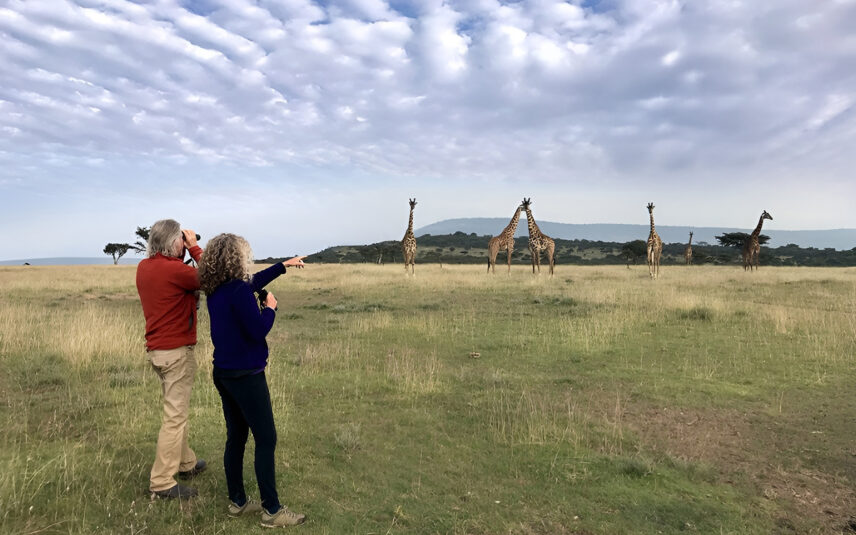From the beginning, our founders Rick Thomson and Judi Wineland believed that tourism should be a force for good. Eco-friendly practices and a commitment to bringing high-paying, stable jobs to local communities have been a pillar of the safari experience since 1981.
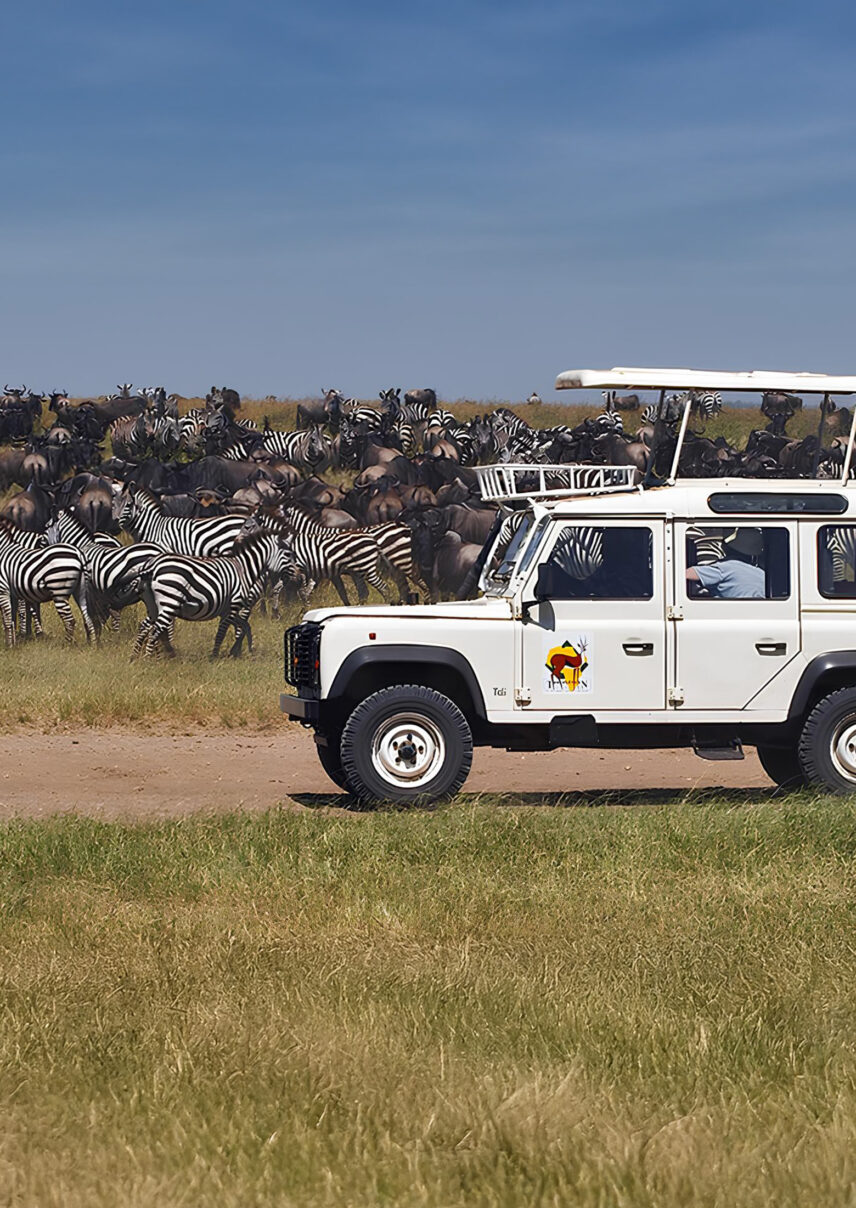
Caring for the Wildlife and Land
Thomson has been an industry leader in responsible wildlife viewing since opening in 1981, winning recognition from the Tanzania Tourist Board and partnerships with some of the world’s leading wildlife conservation groups. This isn’t by chance; a clearly defined strategy keeps everyone at Thomson accountable to the people in the places where safari guests travel.
For example, in 2019, Tanzania banned all single-use plastic bags. Thomson has gone a step farther and phased out all single-use plastic bottles to reduce the amount of waste in Tanzanian landfills.
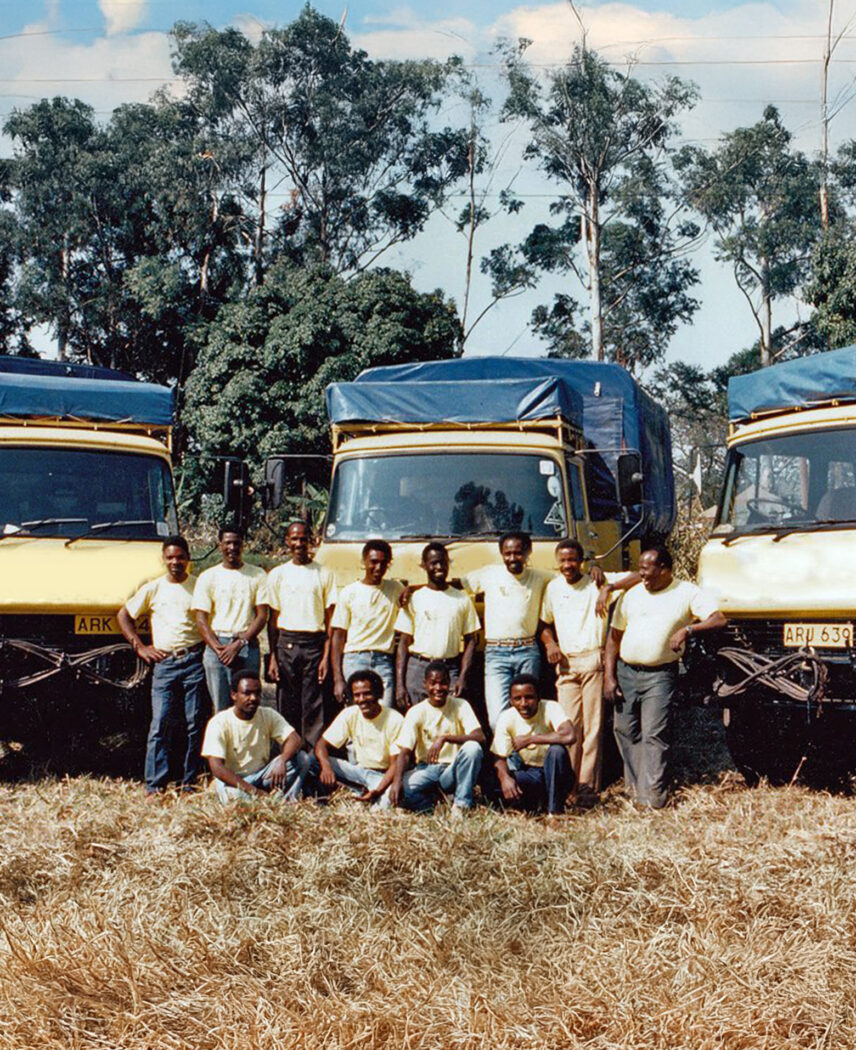
Giving Back to Tanzania
In 1981, Tanzania safari guides were almost entirely non-Tanzanian. When Judi and Rick founded Thomson, they were adamant about doing it another way: they wanted Tanzanian citizens guiding in their own country.
Thomson was one of the first safari outfitters to insist on Tanzanian guides only. Today, nearly all staff are Tanzania-born: cooks, mechanics, logistics teams, drivers, guides and more. Hiring citizens is a critical component to the future of Tanzania’s economy, where tourism accounts for more than 11% of Tanzanian jobs. This investment in the country’s people helps fund educational opportunities, healthcare improvements and wildlife conservation efforts. Learn more about Thomson guides.
Early Conservation Efforts with Jane Goodall
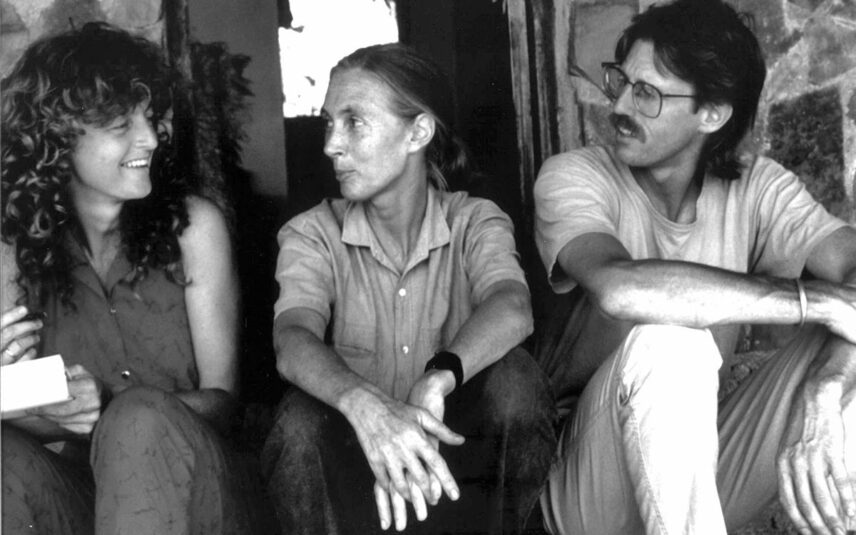
In the early 1980s, when Thomson was in its early years, founders Rick and Judi knew Jane Goodall was studying wild chimpanzees nearby in Tanzania’s Gombe Stream. They were also aware of how her studies were raising curiosity in Tanzania as a travel destination. Rick and Judi saw that her work could potentially be threatened by an influx of travelers, so they started communicating with Jane to find a sustainable tourism solution.
“We wanted Jane to know, ‘Jane, they’re coming,” Judi said. “’Tourists are starting to hear about this. Is there a way to bring tours here and not disturb the area?’”
Rick, Judi and Jane met several times to come up with a plan for tourism in Gombe Stream that would not interfere with her research populations. Ultimately, the conversations were a success, and today, Gombe Stream’s 13.5 million square miles remain well protected.
Rick and Judi’s collaboration came with a few surprises along the way: once while they were chatting with Jane, a chimp she was working with, Michaelmas, died of natural causes. After performing an autopsy in front of Rick and Judi, Jane then asked them to carry the remains back to the U.S. in their suitcases for study. Hear Rick and Judi tell this riveting story in the video above.
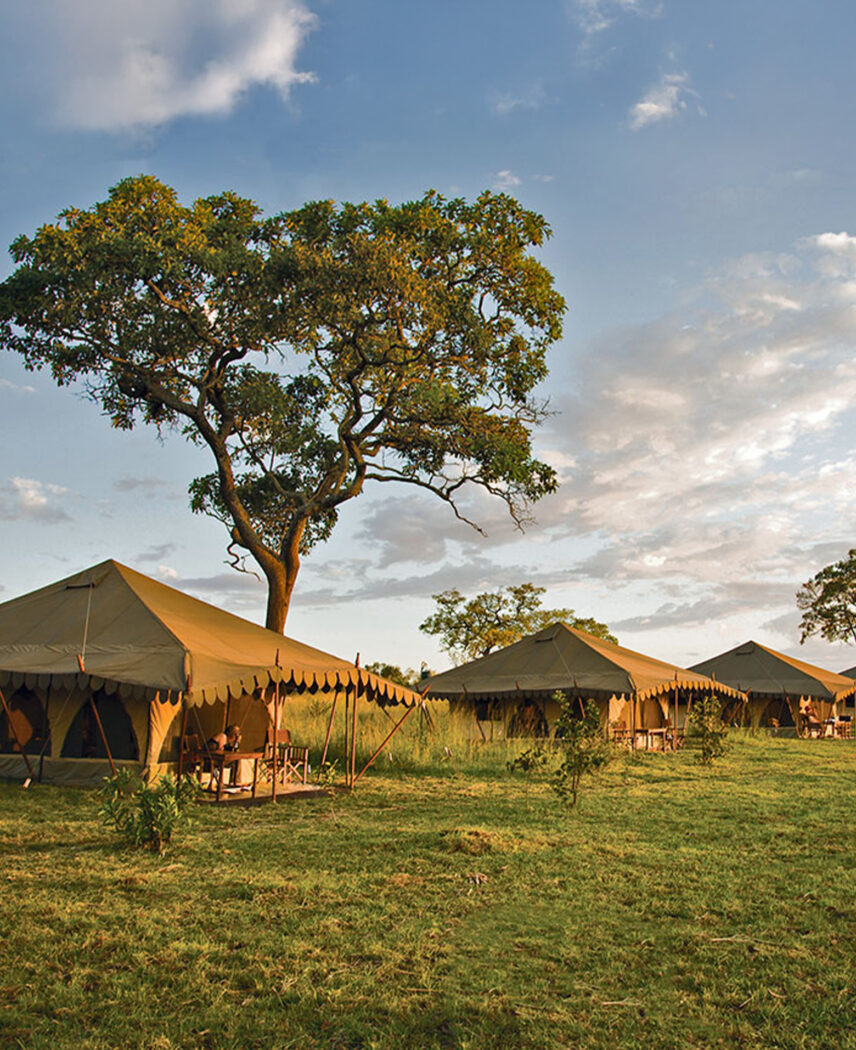
Camps and Tents
With queen-sized beds, fine linens and Western-style amenities, Thomson’s Nyumba tents are designed to provide a private, eco-friendly wilderness experience without sacrificing an authentic safari feel. Here’s why they’re so sustainable:
Solar Power. All of Thomson’s Nyumba tents are outfitted with solar-powered LED lights. No noisy generators anywhere: sunlight provides energy for charging phones, camera batteries and other devices.
Fuel. All Thomson camps utilize propane gas to fuel items like refrigerators and freezers. Thomson staff also prepares meals using propane stoves. Propane is considered an environmentally friendly fuel and is approved as a clean energy source by the Clean Air Act.
Water. Did you know the average American citizen uses about 90 gallons of water a day? Clean water is a precious resource in Tanzania. Thomson is proud of the methods employed to conserve water without sacrificing comfort.
Environmentally-friendly camping has always been a priority. Take a walk through Thomson’s history of camping and watch the tents evolve into the current day Nyumba tents
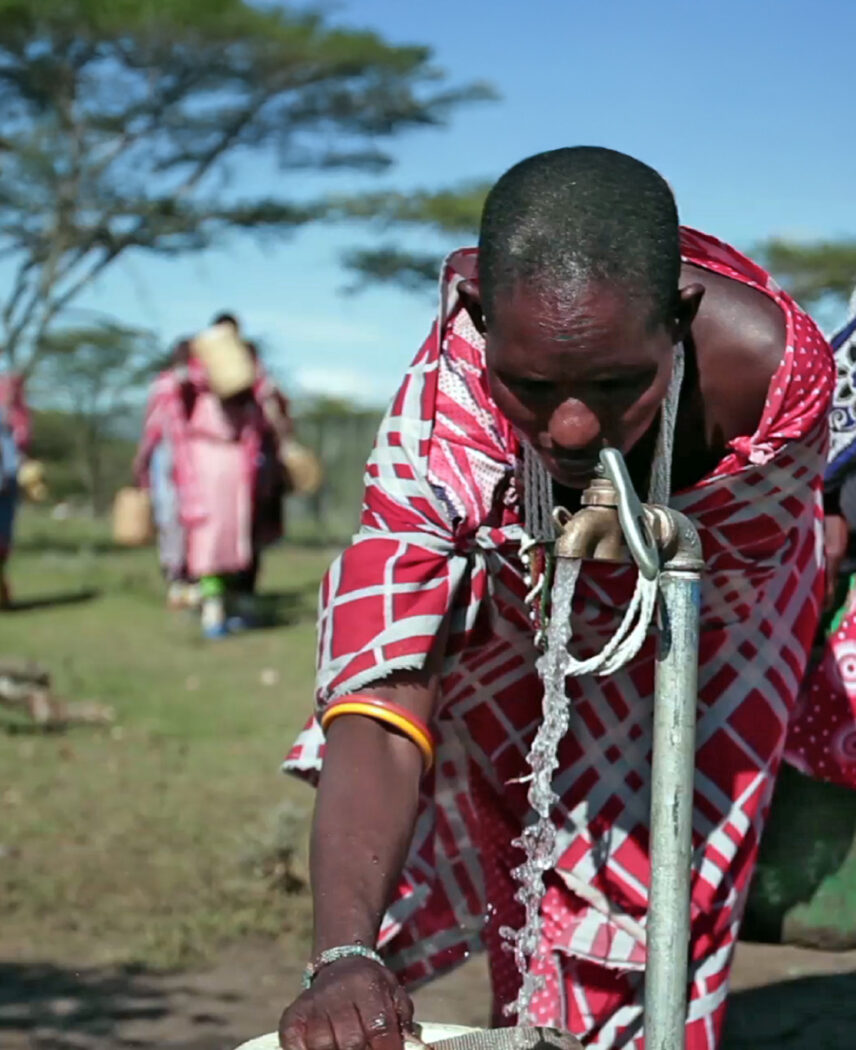
Focus on Tanzanian Communities
Unfortunately, not everyone in Tanzania has access to education or healthcare. That’s why, in 1997, Judi and several former Thomson travelers founded Focus on Tanzanian Communities (FOTZC). FOTZC partners with Tanzanian communities to overcome economic and social challenges by supporting education, health care, women’s empowerment and other community initiatives.
Recent projects include building schools in Soit Sambu and Sukenya, digging boreholes for clean drinking water, constructing medical facilities and funding women’s empowerment initiatives.
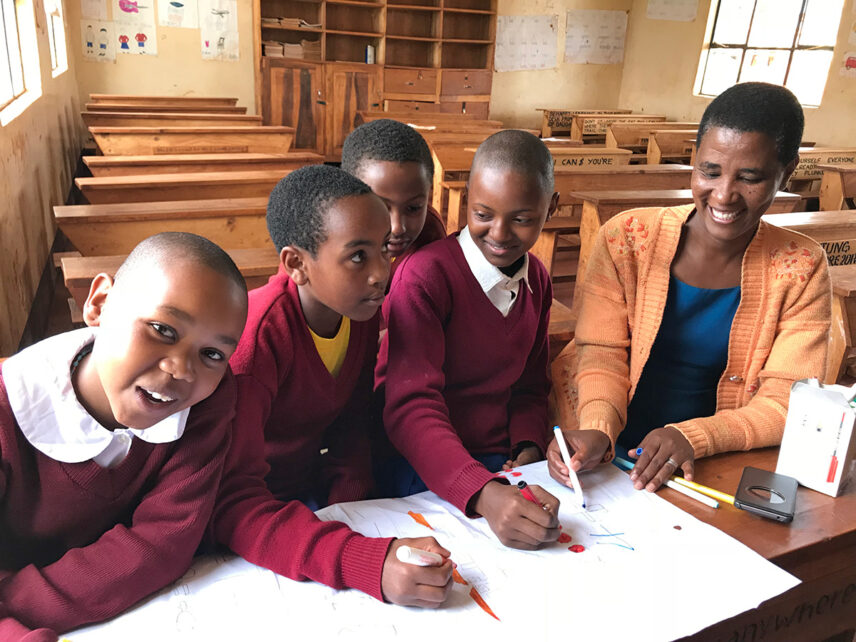
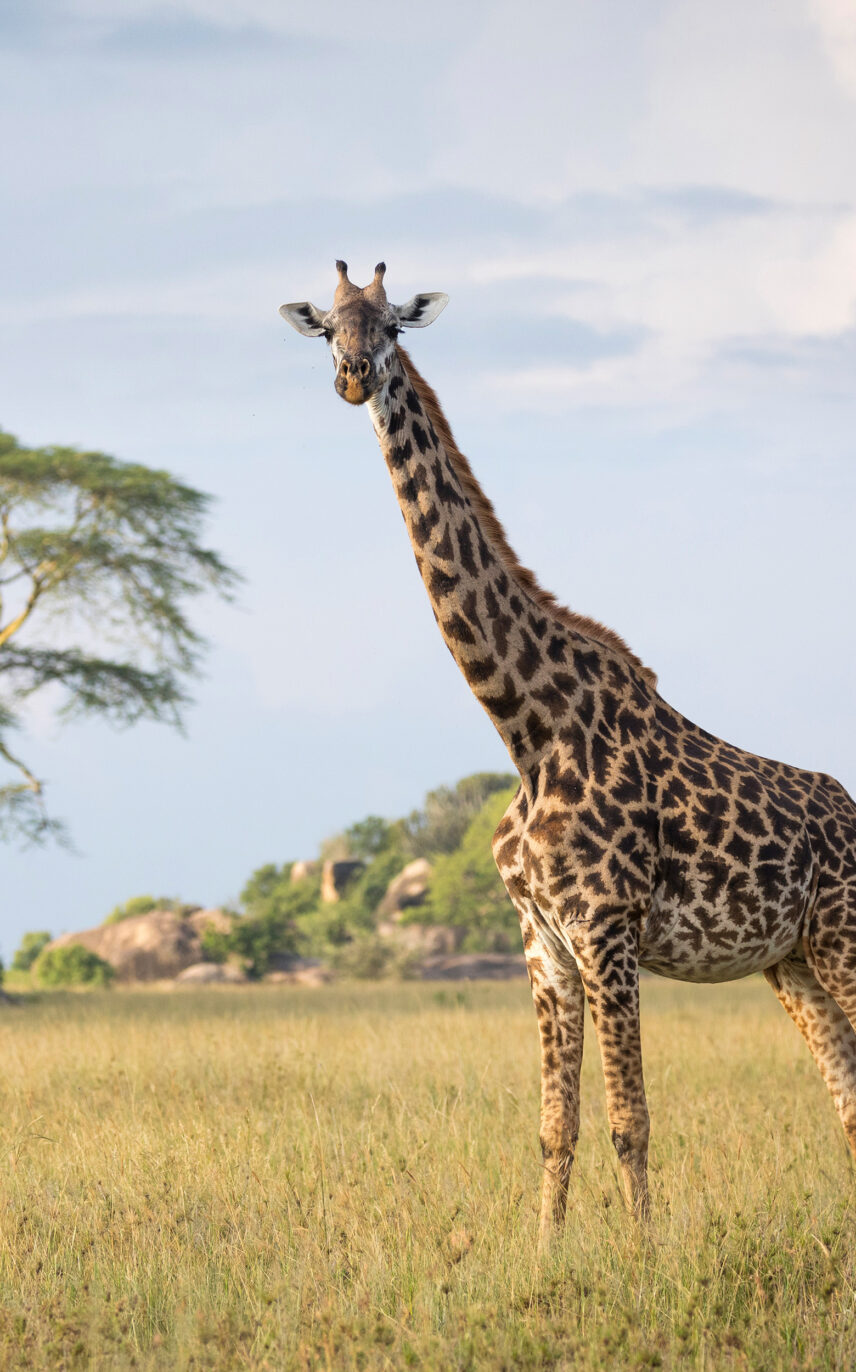
Partnership with African Wildlife Foundation
Thomson Safaris is proud to be partners with African Wildlife Foundation (AWF), an organization developing wildlife compatible partnerships that benefit the people of Africa. This joint effort ensures tourism plays a positive role in protecting Tanzania’s animals and habitats for future generations, all while providing conservation enterprises and education that benefit local African communities.
In the video below, AWF CEO Kaddu Sebunya talks about the immeasurable value of his family’s recent Thomson safari in Serengeti National Park.
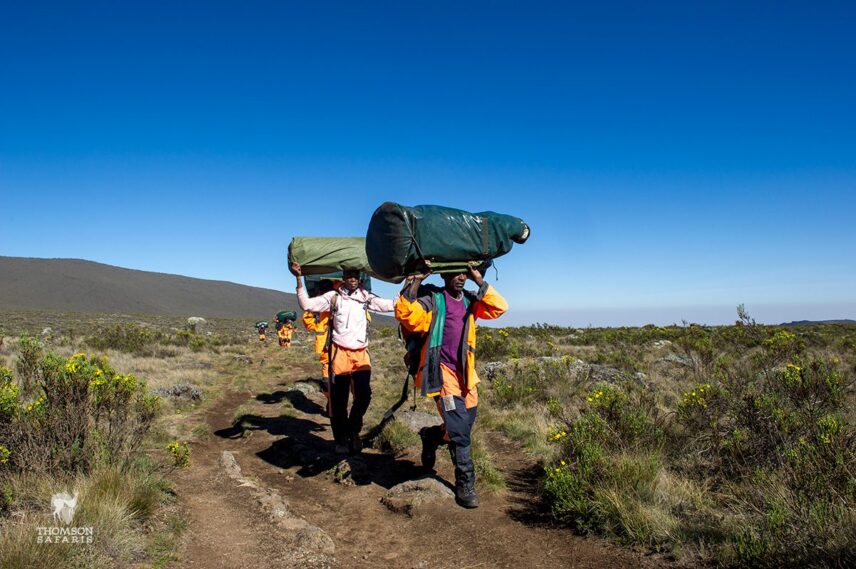
Responsible Treatment of Porters on Kilimanjaro
Thomson has worked tirelessly to break the status quo of low pay and poor treatment of porters on Kilimanjaro, spearheading efforts to raise wages, elevate working conditions and lower weight limits. Thomson is also a founding member of the Kilimanjaro Porters Assistance Project (KPAP) and offers some of the highest compensation packages in Tanzania. This includes:
- Comprehensive Benefits, including bonuses, advanced training, additional educational opportunities and medical care for injuries that occur on Kili.
- Guaranteed payment, even if porters must descend early.
- Proper Equipment, such as professional-grade all-weather uniforms, hats, gloves, proper footwear, warm layers and mountaineering glasses.
- Comfortable amenities, such as custom-designed tents, closed-cell foam sleeping pads and all meals on Kili.
